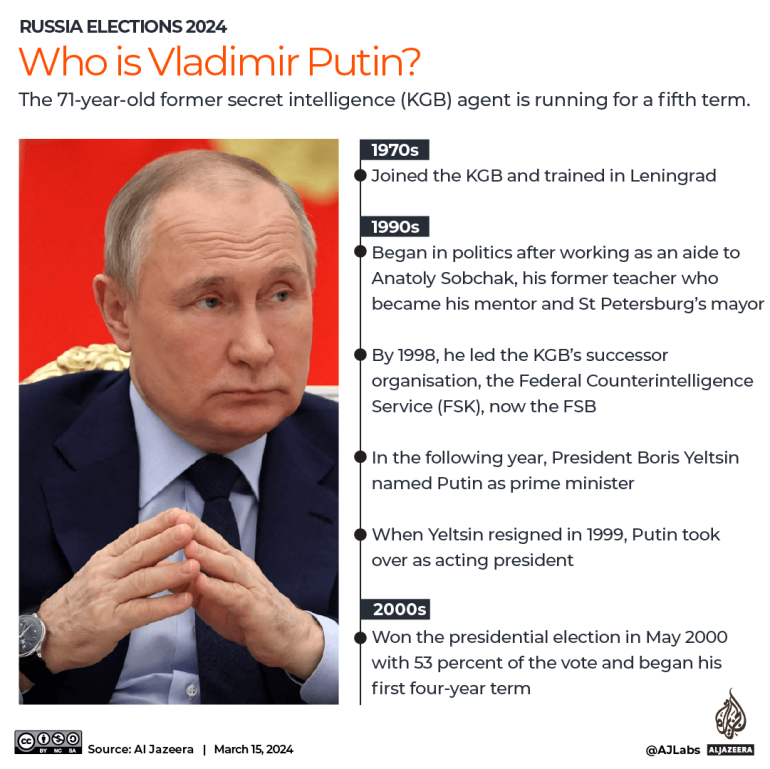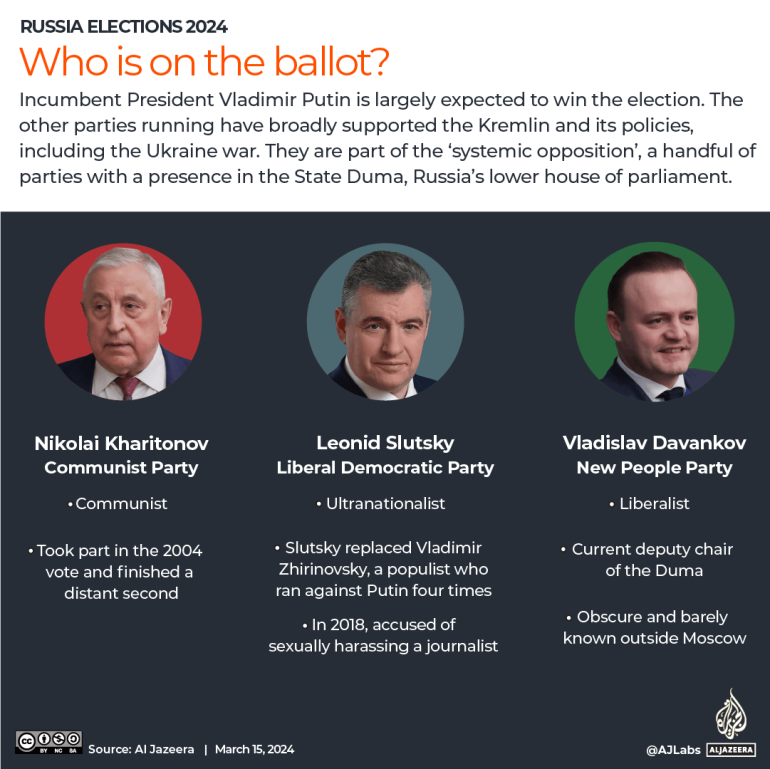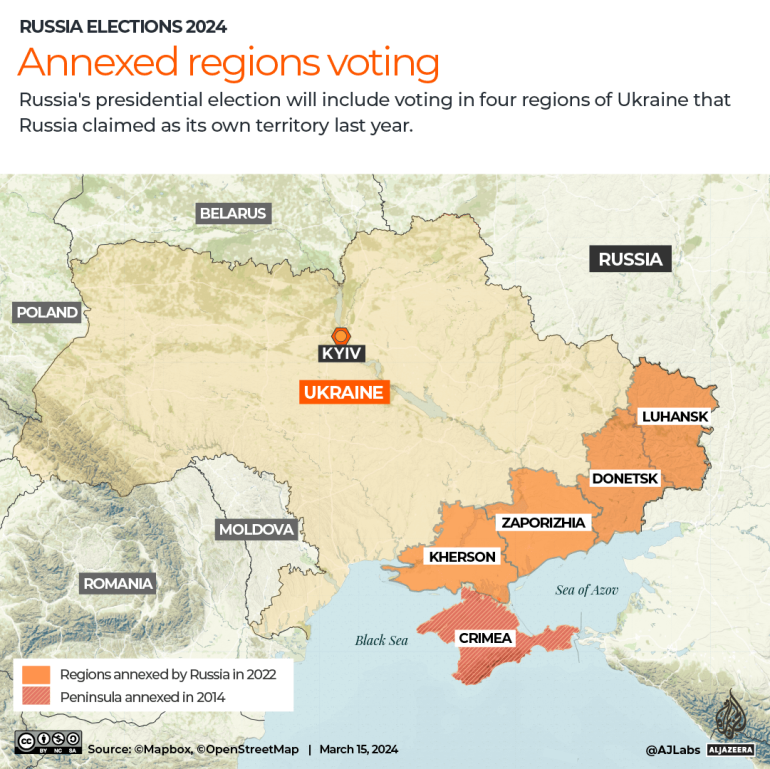Russians begin voting in a three-day election that is almost certain to hand the president six more years.
Russian President Vladimir Putin has accused Ukraine of trying to disrupt his country’s presidential election by shelling Russian territory and using 2,500 soldiers to try to pierce Russia’s borders, promising to punish Kyiv for its actions.
Polls opened across 11 time zones in Russia on Friday to begin three days of voting with Putin almost certain to secure his fifth term since winning his first election in 2000 with dissent in the country almost completely stifled.
The shadow of the Ukraine war fell across the election with what Putin said was repeated shelling of western Russia and an attempt by Ukrainian proxies to cross into Russian territory in two Russian regions.
“These enemy strikes will not remain unpunished,” a visibly angry Putin said at a meeting of Russia’s Security Council, which includes military and spy chiefs as well as the most powerful civilian state officials.
Putin said there had been four attacks on the Belgorod region and one on the Kursk region – both on the border with Ukraine – by about 2,500 Ukrainian proxies. He said they had 35 tanks and 40 armoured vehicles and 60 percent of the fighters were killed.
Ukrainian officials said earlier on Friday that armed Russian groups based in Ukraine that are opposed to the Kremlin carried out the attacks in Belgorod and Kursk.
The first day of the election was also marred by disruptions that included dye being poured into ballot boxes, a Molotov cocktail thrown at a polling station in Putin’s hometown and reported cyberattacks.

At least nine people were arrested for acts of vandalism at polling stations. There were two incidents in Moscow, where one woman filled a ballot box with ink and another woman at a different voting station set a booth on fire.
Several people poured green liquid into ballot boxes, an apparent nod to the late opposition leader Alexey Navalny, who in 2017 was attacked by an assailant splashing green disinfectant in his face.
Russia’s electoral commission chief, Ella Pamfilova, said those who committed the acts of vandalism face up to five years in prison and suggested they had been paid by people seeking to disrupt the vote.

The other candidates running are from Kremlin-friendly parties: Nikolai Kharitonov of the Communist Party, Leonid Slutsky of the nationalist Liberal Democratic Party and Vladislav Davankov of the New People Party.
Opposition politician Boris Nadezhdin tried to run against Putin on an antiwar ticket but was barred from standing after the Central Election Commission said irregularities were found in his list of supporters’ signatures.
Other possible opposition candidates who could have run against Putin have either died or been jailed or live abroad.
Al Jazeera’s Dorsa Jabbari, reporting from Moscow, said every person she spoke to at the voting station she visited said they were backing Putin.
“They say that he is the man for the country, they trust him and they have known him for many, many years. They believe in his policies both domestically and foreign,” she said.
“What is clear is that Putin will again continue his reign in power and tighten his grip.”
Annexed regions
People in the Russia-annexed regions of Ukraine – Crimea, Luhansk, Donetsk, Zaporizhia and Kherson – also took part in the presidential election.
In the eastern region of Donetsk, armed soldiers in full combat gear accompanied election officials as they set up mobile voting stations on small tables in the streets.

Ukraine has condemned the election being held in the annexed territories. In December, Ukraine’s Ministry of Foreign Affairs issued a statement calling on the international community to “impose sanctions on those involved in their organisation and conduct”.
“Any election in Russia has nothing to do with democracy. They serve only as a tool to keep the Russian regime in power,” the ministry said.
Olga Tokariuk, a Chatham House OSUN Academy Fellow in the Ukraine Forum, also said Ukrainians are not taking the election “seriously”.
“Real change in Russia will not come automatically with the removal of Putin from power; it is only possible if Russia gives up on its imperialist ambitions and stops waging wars of conquest – which is not on the horizon,” Tokariuk told Al Jazeera.